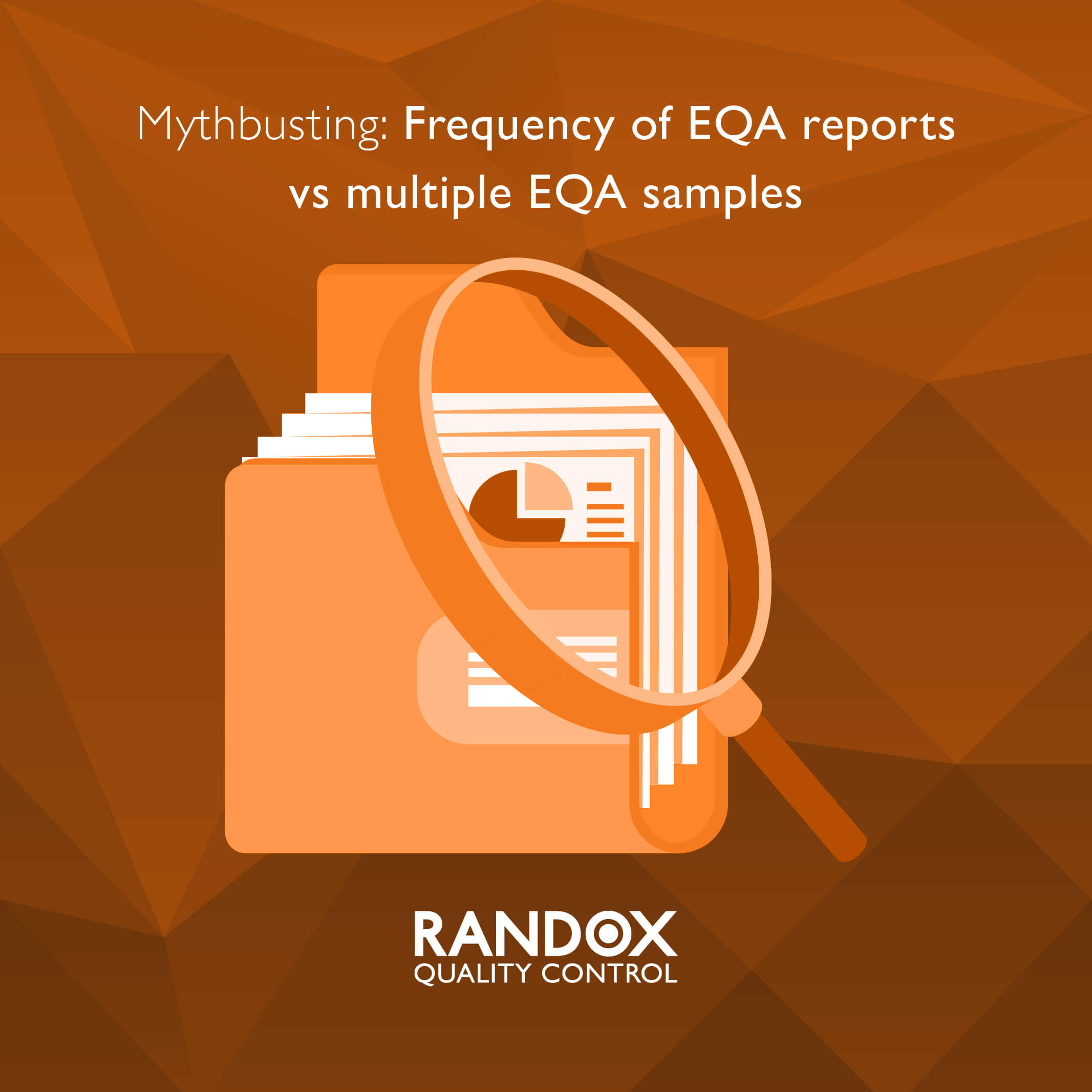Mythbusting: Frequency of EQA Reports

External Quality Assessment (EQA) is a vital aspect of laboratory testing and is often a regulatory requirement. The primary function of EQA is to provide the laboratory with an indication of test system accuracy through interlaboratory comparison. Ultimately participation in an EQA programme will give the laboratory greater confidence in the accuracy and reliability of the results they release.
When choosing an EQA scheme there are a variety of different options. It is important that laboratories weigh up the pros and cons of each option in order to choose the scheme that best suits their needs.
Many EQA schemes promote the distribution of multiple EQA samples per challenge or testing event as a benefit to the laboratory. By analysing multiple samples at each testing event, laboratories believe they are challenging their test system across a wider range of concentrations than would be possible if they were to analyse just one sample. However, this is not always the case as in many instances the levels can be very similar. Another consideration is the EQA report received by the laboratory. EQA reports are used to assess analytical performance and identify any test system failures, such reports can take more than one month to receive. In such instances it would be more beneficial if the laboratory tested just one sample at each bi-weekly/monthly challenge and received their report faster.
Report frequency should be priority for any laboratory when choosing an EQA scheme. A fast turnaround time will allow any test system errors to be identified sooner and necessary corrective actions to be taken immediately with minimum disruption to the lab. Perhaps the most important benefits of a rapid report turnaround is cost and time savings as it will significantly reduce the time and money spent re-running patient samples.
If the time between sending EQA results back to the organizer and receiving an EQA report is too long, it becomes more difficult to pin-point exactly when an error was encountered thus increasing the possibility of incorrect test results and possible misdiagnosis. While this would be considered the worst-case scenario, it is still a possibility.
Choosing an EQA provider that delivers both frequent analysis and a quick report turnaround will give the laboratories the confidence they need to report patient test results.
With the Randox International Quality Assessment Scheme (RIQAS), comprehensive reports are available within 72-hours of the submission deadline. Furthermore both bi-weekly and monthly analysis options are available.
To find out more on RIQAS and our extensive product portfolio, comprising 32 programmes, visit our page – http://www.randox.com/riqas-external-quality-assessment/ or alternatively contact us using the button provided.

